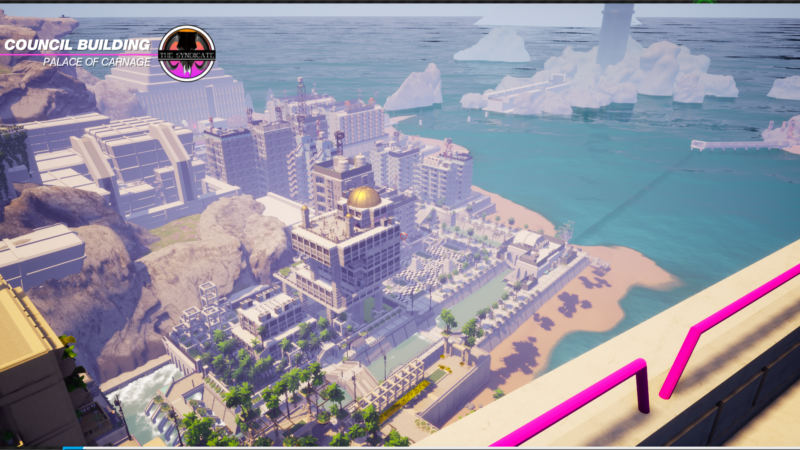
Paradise Killer: The Horror of Normal
This piece contains spoilers for Paradise Killer.
Grace,
I couldn’t help but chuckle reading that paragraph in your letter about the island never feeling disturbing, not because I necessarily think you’re wrong or off base, but because of course you’d feel that way while Jess and I just had a conversation about how wholly unnerving the experience of being on Paradise Killer’s island is. That sensation was so bad for Jess she couldn’t even get through the game. For me, I think it’s what made it.
From the moment you set foot on the island, it’s already apparent that something has gone horribly wrong. It’s too late to stop it, you’re only here to figure out the truth, or the facts. Probably not both. Lady Love Dies is as much a historian as she is a detective, recording everything that led to the Council’s demise. That’s what’s really scary here: the past. The island may be a machine, but it’s a blood soaked, haunted one, and the game always wants you to remember that.
The first room you enter is covered in gilded skulls, a garish introduction to the island’s lavishly macabre aesthetics. As much as we the player–and even some members of the Council–might like to forget it in the glow of neons and vaporwave beats, these people are devoted to the service of creatures of misery and destruction. I hesitate to call them gods, as I’m not quite sold on that angle, but that’s for another letter. Even if you want to forget, the game won’t let you. You start with those gilded skulls, and as you explore the island and search for clues, you find the layers of darkness both figuratively and literally go deep within the island.
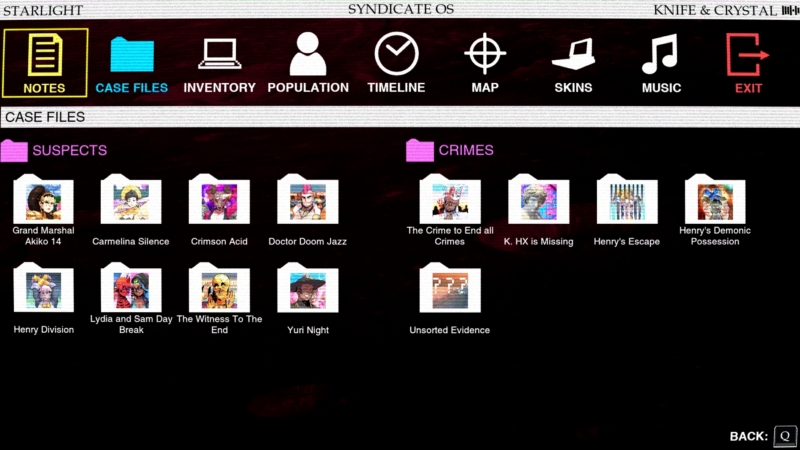
For all their stylish design and snappy candor, each of these characters is a monster in their own way, and all of them–some more literally than others–have twisted the island to reflect that. This game is not horror in the vein of Alien, where you constantly have to fear that someone or something is lurking around every corner. Rather, it’s a crime scene and a museum all in one. Not only do you see the horrors the Council wrought on each other, you see the horrors they wrought on the people they brought here.
It’s not in any huge way. The most blatant is when you encounter the blood soaked ziggurat where the citizens were sacrificed as the island came to the end of its cycle. Their splattered remnants are the greatest mark they were able to leave, but it remains hidden behind gilded doors on the mountain. We never see any citizens, save Henry, who has been possessed by a demon for a large portion of his life. Like you said, the island is beautiful and clean. The thing is, you can wash blood away, bleach it even, but that doesn’t mean all the evidence of life lost is gone.
We see it most obviously in the actual ghosts that haunt the island, deceased citizens who were wronged by the Council and are seeking justice in the afterlife. Or at least some relief. They provide the most context for what terrible conditions regular people in this society endured, alongside Henry’s eventual anecdotes about his own life pre-possession. Those stories are all sad, but they’re almost forgettable with all the bombastic things going on. And yet, the game wants you to remember. Their suffering is like a soft white noise in the background.
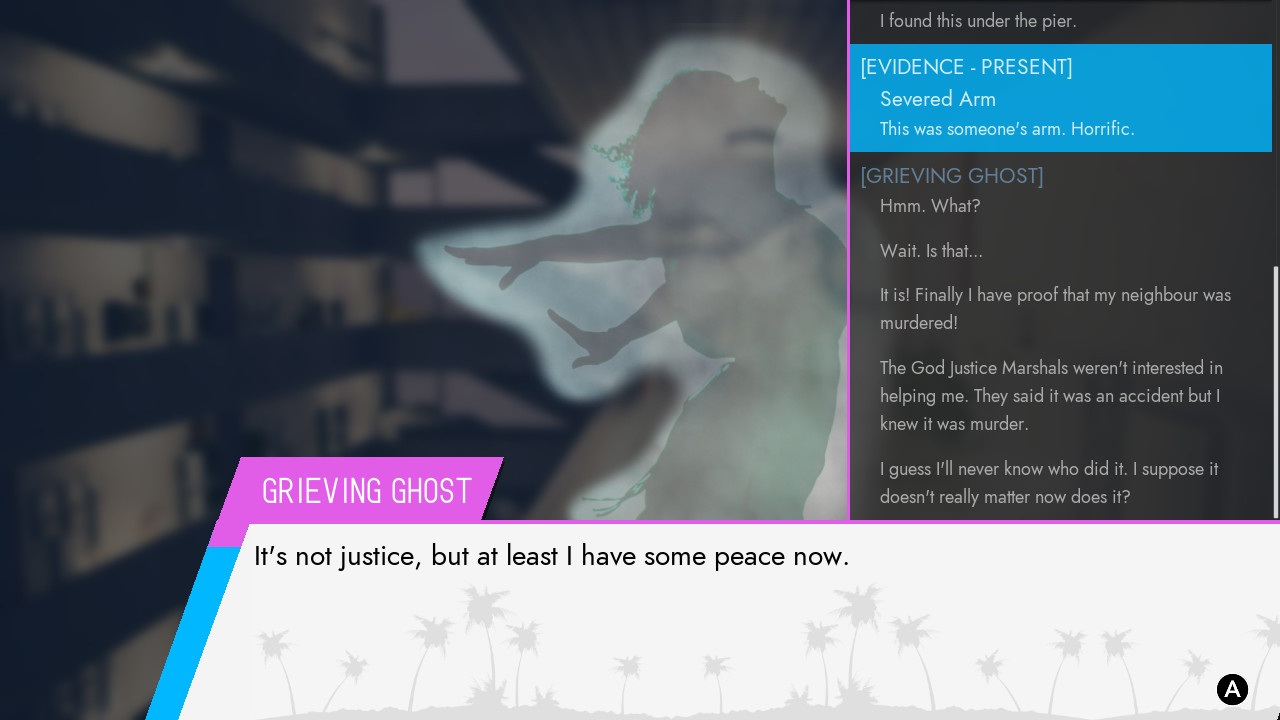
Everywhere you go, the class divide becomes more apparent. In the citizen housing, which is so meager and cramped even from the outside compared to the Council penthouses. In the warehouse and farming areas, where you see the unsafe and downright brutal working conditions laborers in these areas were under. In the blast zone that ruined not just Henry’s life, but everyone who lived around him. You visit these places often, especially if you’re like me and got lost frequently. That pressure of human suffering, of inherent wrongness under the vibrant veneer, is always there, pressing against the experience. Reminding you that yes, this world is fun and wild, but at what cost?
We experience this all through Lady Love Dies’ eyes, and we are even able to shape how she reacts to what she’s seeing. That’s what originally made this game’s ending so frustrating to me. With an LD that has condemned what happened to the ghosts, Henry, and even herself, it kind of felt like bullshit that there wasn’t an option for her to fight back against the continuation of the islands. But that, my dear Grace, is what makes Paradise Killer actually scary. It acknowledges how easy it is for those on the edge of privilege and access to slide right back into the system, even after witnessing heinous abuses and being abused themselves.
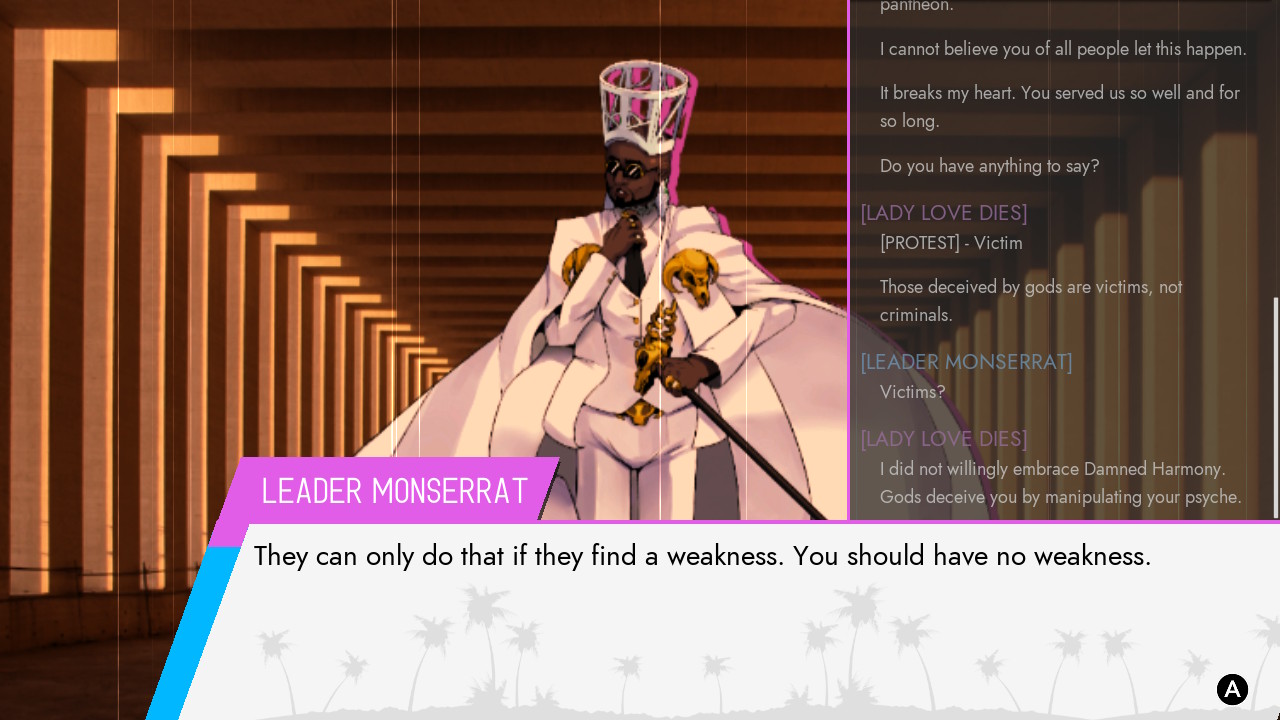
It was almost baffling to see LD experience just how much horror had happened because of the island system and still want to perpetuate it. After all, Witness, Carmelina, Akiko, Sam, and Lydia all did what they did because they wanted the way things were to change. The morality of their actions takes a back seat to the fact that all of them were so desperate to escape the way the island was running. LD sees all this, and is even granted the ability to purge the rest of the surviving Council members if she sees fit, all in the name of returning to the status quo. It doesn’t matter whose life was lost on either side, really, so long as things continue the same way.
Now though, I get it. After all, 41 out of 48 Democrats just voted with Mitch McConnell to move forward a military spending bill over COVID relief. And how many times have we heard the phrase “when things get back to normal” after we saw our government dive head first into fascism while the police attempted to deny incidents of brutality and corruption despite evidence of it happening, and facing little to no consequences.
The scariest thing in the world to me is the seemingly human desire to maintain inertia, sometimes at any cost. Some people can see the worst shit imaginable, and just want things to be like how they used to be. Paradise Killer understands that, and drives it home by leaving you frustrated on the shores of a dying island, while LD goes on to get whatever she has coming on the next island. The sheriff is back in town, and a new Council will rise. Soon no one will remember the bodies left behind. Everything will go back to normal.





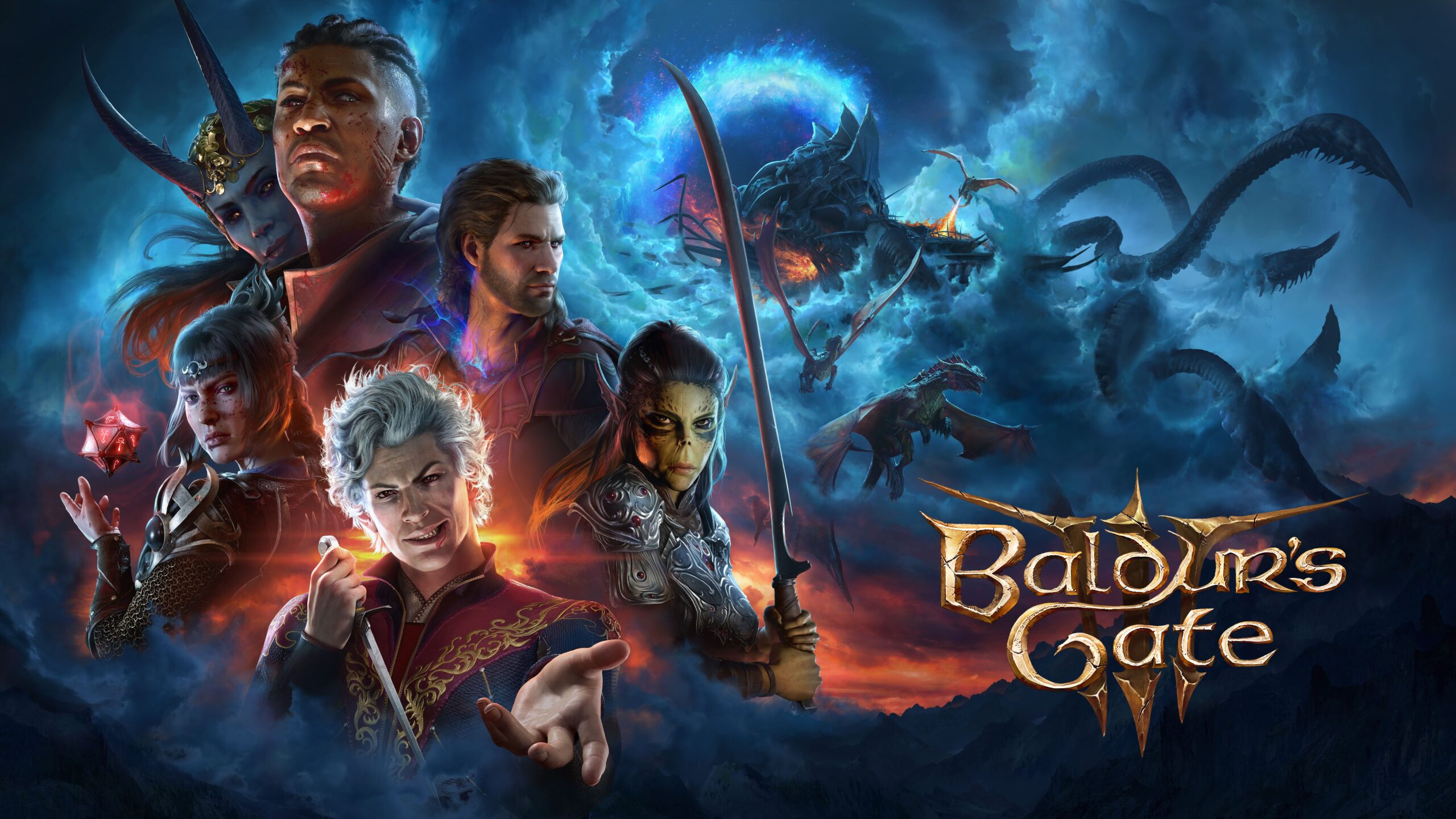
1 thought on “Paradise Killer: The Horror of Normal”